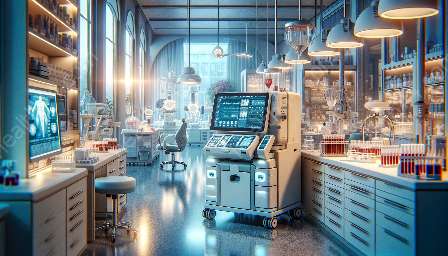In the world of clinical testing equipment and medical devices, centrifuges play a crucial role in separating substances and particles for various applications. This comprehensive guide explores the importance of centrifuges and their impact on these fields.
Understanding Centrifuges
Centrifuges are mechanical devices that use centrifugal force to separate substances of different densities. They are extensively used in laboratories and medical facilities for a wide range of applications, including blood separation, DNA analysis, and pharmaceutical research.
Types of Centrifuges
1. Ultracentrifuges: These high-speed centrifuges can reach speeds of up to 100,000 rotations per minute (RPM), making them ideal for separating particles at the molecular level.
2. Microcentrifuges: Designed for smaller sample volumes, microcentrifuges are commonly used in clinical testing and research settings.
3. Refrigerated Centrifuges: These centrifuges include a temperature control feature, which is essential for preserving sensitive samples during separation.
Clinical Testing Equipment and Centrifuges
Clinical testing equipment relies heavily on centrifuges to separate blood components, analyze cell structures, and isolate specific molecules for diagnostic purposes. For example, in hematology, centrifuges are used to separate plasma and blood cells, allowing for accurate analysis and diagnosis.
Advancements in Centrifuge Technology
The rapid advancement in centrifuge technology has led to the development of specialized equipment tailored to specific medical and clinical needs. For instance, there are now centrifuges designed for point-of-care testing, enabling rapid sample processing and analysis at the patient's bedside.
New technologies such as microfluidic centrifugation have revolutionized the field, allowing for more efficient and precise separation of particles and biomolecules at a microscale level.
Centrifuges in Medical Devices and Equipment
Centrifuges play a vital role in the development and manufacturing of medical devices and equipment. They are integral in the purification and isolation of biomaterials used in the production of various medical devices, including diagnostic tools, drug delivery systems, and implants.
Conclusion
Centrifuges are indispensable tools in the realms of clinical testing equipment and medical devices, contributing to advancements in diagnostics, research, and treatment. As technology continues to progress, the role of centrifuges in these fields will only become more significant.


